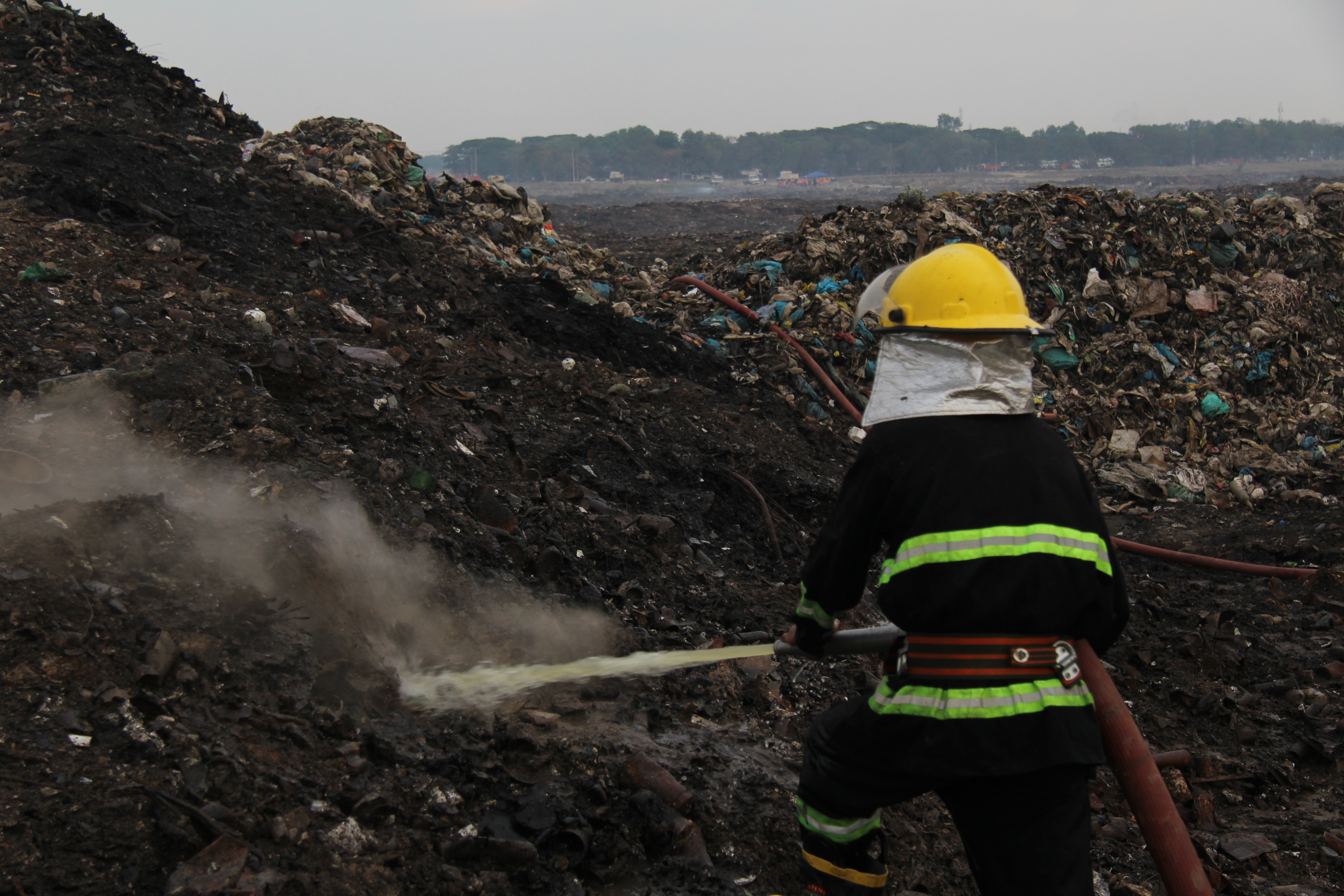Yangon’s city council plans to raise fees for rubbish collection in order to fund the operations of a waste-to-energy plant, Mayor Maung Maung Soe announced during a regional parliament session on Wednesday.
“The construction of a waste-to-energy facility will be expensive, and there will be annual expenses to run the plant. We need to raise the waste collection tax to cover expenses such as electricity and maintenance costs,” the mayor said in response to a question from regional lawmaker Yan Shin of Mayangone Township. The MP had asked whether the regional government is planning to enact measures to prevent landfill fires similar to the one at the Htein Bin landfill earlier this year.
Starting in April, the Htein Bin landfill in Yangon’s Halingthaya Township burned for three weeks, releasing toxic fumes into the air that cause dozens of people to seek medical treatment. Local authorities were unable to identify the cause of the fire for weeks, but experts told Coconuts at the time that landfill fires are a common occurrence around the world and are generally caused the buildup of heat from the decomposition of organic material deep underground.
Landfill fires are prevented by keeping out organic waste, which can instead be recycled as fertilizer or converted into energy.
The Yangon City Development Committee previously had a plan to separate organic from inorganic waste during collection in cooperation with an Australian waste management company, but the plan was scrapped in 2015 when the committee found that less than 20 percent of residents approved of the K33 (US$0.02) daily fee increase it would have required. Since then, Yangon’s landfills have continued to receive a flammable mix of organic and inorganic waste.
Yangon households currently pay between K400 (US$0.25) and K600 (US$0.37) for waste collection. Mayor Maung Maung Soe did not specify the amount of the fee increase required to pay for the new waste disposal system, but he said the government would seek to implement it through a joint venture.
In addition to plans for the new energy plant, the mayor also explained that city authorities have cleared lanes within the city’s landfills in order to give fire trucks better access in the event of a fire.
The Htein Bin landfill receives waste from Yangon’s northern and western districts, while the Dawei Chaung landfill in North Dagon Township receives waste from the eastern and southern districts. Townships south of the Yangon River have their own landfills.





Reader Interactions